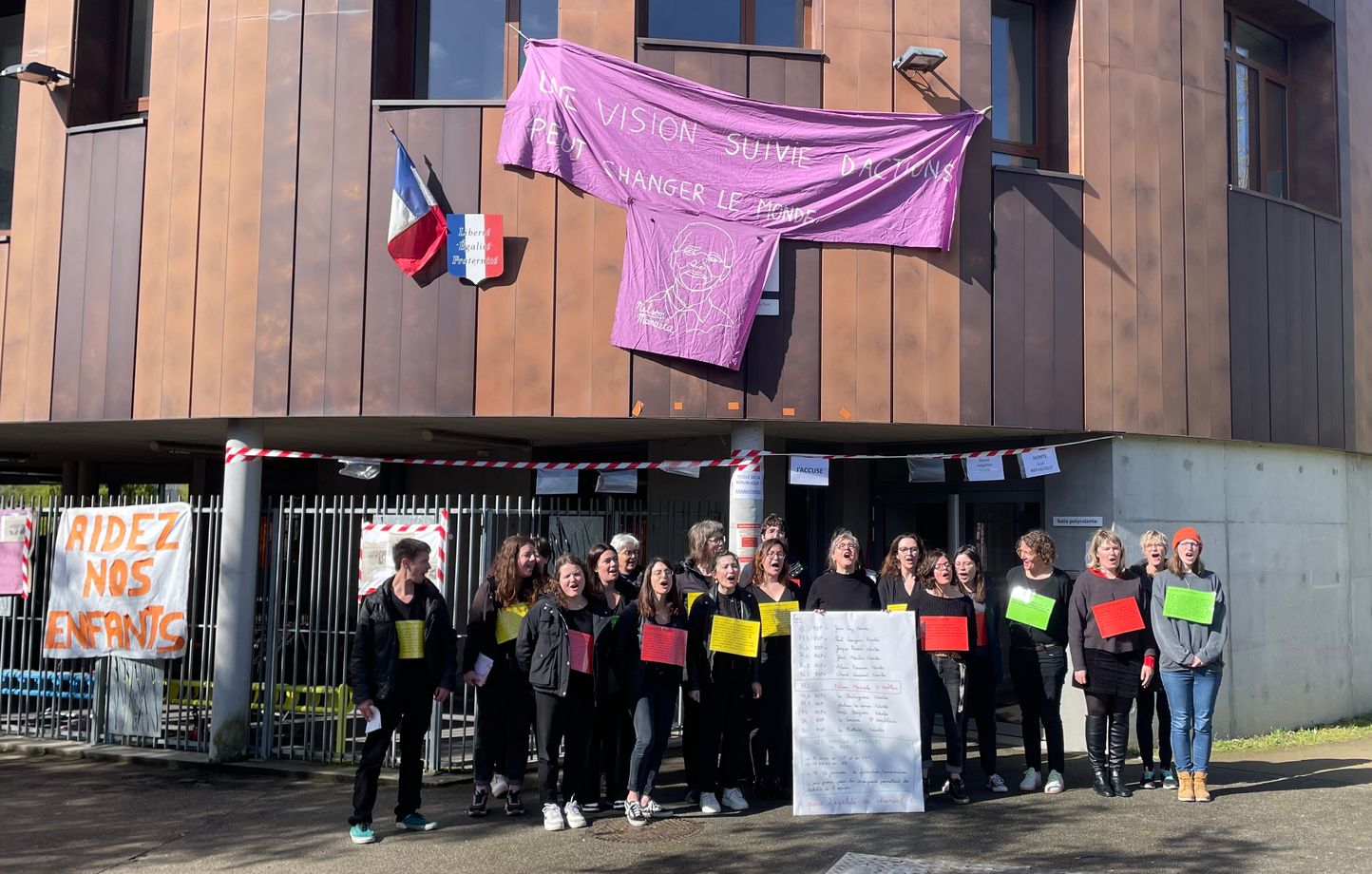There was no point in packing the school bag this Tuesday morning, and it will be the same this Wednesday. Since this Tuesday, the Nelson-Mandela school in Saint-Herblain near Nantes has been running almost empty, while the vast majority of eighteen teachers have launched a “renewable strike” movement. A new outburst of anger in this institution of 380 students, which has been fighting for almost ten years to re-enter the map of education priorities, in order to receive “enough” funds for classes.
Located very close to one of the poorest districts in France (poverty rate reaches 64%), Sillon de Bretagne, however, is excluded from the list of “REP +” institutions because it is attached to a college where social diversity is considered satisfactory. The situation was experienced as a “bug”, “absurdity”, even “injustice”, according to the interviewed parents and teachers. A misunderstanding that we find in about 500 schools in France, which are called “orphans”, and which are in the same situation according to the 2019 report.
“Overcrowded” classes
We introduce ourselves to Nelson-Mandela as an “emblem”. It must be said that this school, which is attended by forty different nationalities, has been talked about for a long time, even in the corridors of the Ministry of Public Education or in the assembly hall. The deputy (LFI) Ségolène Amiot made it one of her hobby horses, the mayor of the city (PS) Bertrand Affilé appealed to his colleagues throughout the country, while dozens of letters of all kinds were sent… without a satisfactory answer so far. Each time, a shocking argument against a system criticized for its rigidity appears: the well-known Index of Social Positioning of Students (IPS), which here is only 70, the eighth lowest in the Loire-Atlantique department…
“Meanwhile, we face overcrowded classes of around 22 students, while the schools that have the mark have double numbers, between 15 and 18, for example in CP,” calculates Basile Guérin, a teacher in small and medium classes and unionized in Court of Education. . We can no longer do one essential thing, which is individualization. At the end of the day, we didn't talk to all the students, and we didn't talk to all the parents either. » The problem is when half of the families that attend the institution are not native speakers of French.
“The same chances as others”
At the foot of a large banner, Imane oscillates between hope and anger. “We talk about the risks of groups at the high school level, but in Mandela, social classification has already occurred since 2015, laments this mother of three children, delegate of parents of students, in solidarity with teachers. Since November, 81 uncompensated absences have been recorded. Some families send their children to the private sector… How do you want those who stay to have the same opportunities as the others? »
Questions that all concerned families ask in France, for example in Bassens (Gironde), where the Rosa-Bonheur school group is also one of the “forgotten” institutions. Due to the lack of funds, the shortcomings of the students entering the 6th grade are worrying, considering the evaluation results. “In French, 61.53% get unsatisfactory results, according to FCPE. Almost every other child has difficulties in mathematics (45.15%). »
Sharing this observation, and despite the implementation of the Local Support Agreement (CLA) considered insufficient, Saint-Herblain teachers also highlight the “suffering at work” of the teams, with high turnover. “Our colleagues in REP + receive a bonus of 400 euros that eludes us,” continues Basile Guérin. The same applies to the half-day training sessions that were supposed to enable us to organize the work of the school. Suddenly, the teachers leave. The average length of service here is less than three years. So you have to start all over again every time. »
Requested by 20 minutes On this first day of the strike, the Nantes academy did not respond to the request. Expected in a few years, the revision of the education priority map should not begin until next year. “It will be urgent and necessary to take the photo again,” believes Cécile Rossard, for Sgen-CFDT. Because if we want more and more diversity in colleges, but they remain the only criterion, there is a risk that there will be more and more orphan schools. »

